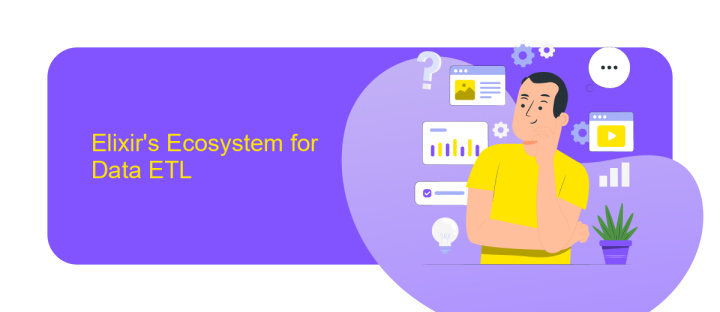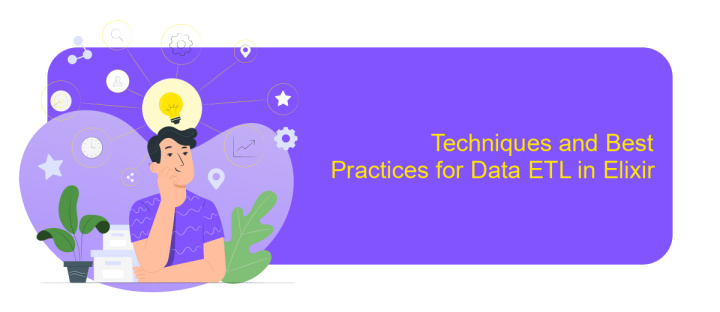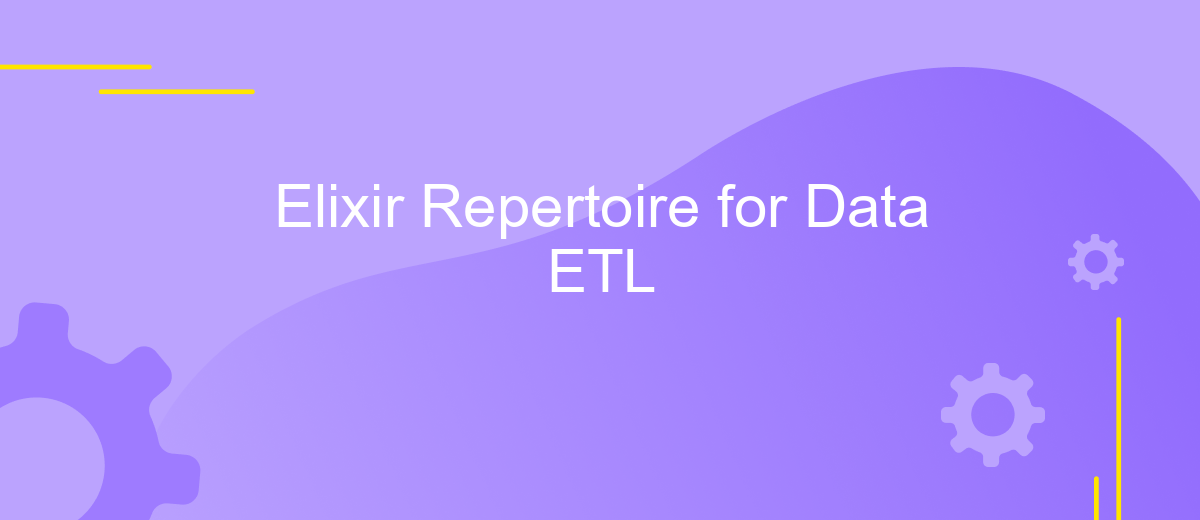Elixir Repertoire for Data ETL
Elixir, a dynamic and functional programming language, has gained significant traction for its efficiency in handling concurrent and distributed systems. Its robust ecosystem, including powerful libraries like Ecto and Flow, makes it an ideal choice for data ETL (Extract, Transform, Load) processes. This article delves into the Elixir repertoire, showcasing its capabilities and tools for efficient and scalable data ETL operations.
Introduction to Elixir and Data ETL
Elixir is a dynamic, functional language designed for building scalable and maintainable applications. Leveraging the robust Erlang VM, Elixir is particularly well-suited for concurrent and distributed systems, making it an excellent choice for data ETL (Extract, Transform, Load) processes. Data ETL involves extracting data from various sources, transforming it into a suitable format, and loading it into a target system for analysis or storage.
- Elixir's concurrency model simplifies handling large data sets.
- Pattern matching and functional paradigms enhance data transformation.
- Libraries like Ecto streamline database interactions.
- Integration with external APIs is facilitated by tools such as ApiX-Drive.
ApiX-Drive is a versatile service that helps automate and streamline data integrations between various platforms. By incorporating ApiX-Drive with Elixir, developers can efficiently manage data flows, ensuring seamless ETL processes. This combination empowers businesses to handle complex data operations with ease, ensuring data integrity and consistency across different systems.
Elixir's Ecosystem for Data ETL

Elixir's ecosystem for data ETL (Extract, Transform, Load) is robust and versatile, making it an excellent choice for handling complex data workflows. One of the key aspects of Elixir is its concurrency model, powered by the BEAM virtual machine, which allows for efficient parallel processing. This is particularly useful in ETL processes where large datasets need to be processed quickly and reliably. Libraries such as Flow and GenStage provide powerful abstractions for building data pipelines, enabling developers to process and transform data in real-time.
In addition to its inherent capabilities, Elixir's ecosystem is further enhanced by integration services like ApiX-Drive. ApiX-Drive simplifies the process of connecting various data sources and destinations, allowing for seamless data transfer and transformation. This service supports a wide range of APIs and can automate data workflows without requiring extensive coding. By leveraging ApiX-Drive, Elixir developers can focus on building robust ETL processes while relying on a reliable integration layer to handle the complexities of data connectivity. This combination makes Elixir a powerful tool for modern data ETL tasks.
Building a Data Pipeline with Elixir

Building a data pipeline with Elixir can be a powerful way to handle ETL (Extract, Transform, Load) processes efficiently. Elixir's concurrency model and functional programming paradigm make it well-suited for managing large volumes of data and complex transformations.
- Define your data sources and sinks. Identify where your data is coming from and where it needs to go.
- Extract the data. Use Elixir libraries like HTTPoison for web data or Ecto for database interactions to pull in your raw data.
- Transform the data. Utilize Elixir's powerful pattern matching and data transformation capabilities to clean and format your data.
- Load the data. Push the transformed data to your desired destination, whether it's a database, a file system, or another service.
- Automate and monitor. Implement tools like ApiX-Drive to automate data flows and monitor the pipeline for any issues.
Elixir's robust ecosystem provides various tools and libraries to streamline each step of building a data pipeline. By leveraging these resources, you can create a scalable and efficient ETL process tailored to your specific needs.
Techniques and Best Practices for Data ETL in Elixir

When working with Elixir for data ETL (Extract, Transform, Load), it's essential to adopt effective techniques and best practices to ensure smooth and efficient data processing. Elixir's concurrency model and functional programming paradigm offer unique advantages for handling large datasets and complex transformations.
One key technique is to leverage Elixir's powerful pattern matching capabilities, which can simplify data extraction and transformation logic. Additionally, using libraries like Ecto for database interactions can streamline data loading processes. It's also beneficial to utilize Elixir's GenStage and Flow libraries to build concurrent and scalable data pipelines.
- Utilize pattern matching for efficient data extraction.
- Use Ecto for seamless database interactions.
- Leverage GenStage and Flow for concurrent data processing.
- Implement comprehensive logging and monitoring for troubleshooting.
For integrating various data sources and services, consider using tools like ApiX-Drive, which can automate data transfers and streamline ETL processes. By following these best practices and leveraging Elixir's strengths, you can build robust and efficient data ETL pipelines that meet your organization's needs.
- Automate the work of an online store or landing
- Empower through integration
- Don't spend money on programmers and integrators
- Save time by automating routine tasks
Case Studies and Real-World Applications
One notable case study involves a financial services company that leveraged Elixir for their data ETL processes. The company needed to handle large volumes of transaction data efficiently and in real-time. By utilizing Elixir's concurrency and fault-tolerance features, they were able to process and transform data with minimal latency. This allowed them to provide real-time analytics and reporting to their clients, significantly enhancing the user experience and operational efficiency.
Another real-world application of Elixir in data ETL is seen in a healthcare analytics firm. They integrated various data sources using the ApiX-Drive service, which facilitated seamless data flow between disparate systems. Elixir was then employed to cleanse, transform, and load the data into their analytics platform. This streamlined their data pipeline, reduced errors, and improved the accuracy of their predictive models. The result was a more robust healthcare analytics solution that provided actionable insights to healthcare providers.
FAQ
What is Elixir Repertoire for Data ETL?
How does Elixir Repertoire handle data transformations?
Can Elixir Repertoire integrate with other data sources?
What are the benefits of using Elixir Repertoire for ETL processes?
How can I automate my ETL processes using Elixir Repertoire?
Apix-Drive is a simple and efficient system connector that will help you automate routine tasks and optimize business processes. You can save time and money, direct these resources to more important purposes. Test ApiX-Drive and make sure that this tool will relieve your employees and after 5 minutes of settings your business will start working faster.


